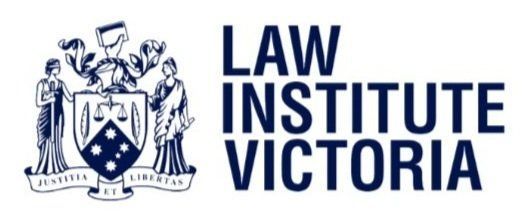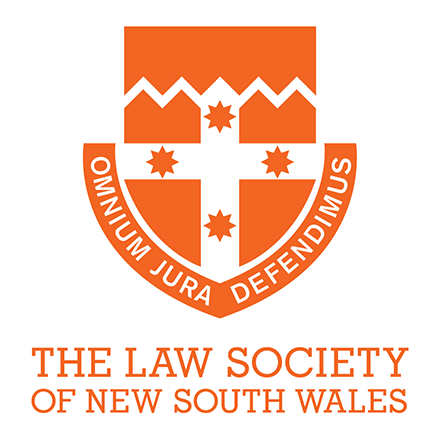Estate planning is ensuring peace of mind for yourself and protecting your family and loved ones.
Estate planning is much more than a simple Will. It involves determining how you will distribute and manage your assets after you pass away or lose capacity. Estate planning takes into account a person's current circumstances, along with their foreseeable future and final wishes. Although it's vital to have a valid Will, estate planning covers many other aspects, including Powers of Attorney and Enduring Guardians.
Without the appropriate documentation in place, the law may determine the fate of your assets and medical care, which may not be in line with what you actually want.
What is a Will?
A Will is a legal declaration of a person's final wishes as to how they would like their estate (property and assets, money, personal effects, even pets) to be distributed after death and nomination of the person/s they would like to be responsible for their estate administration, known as the Executor.
Why should I have a Will?
Decide how you wish your assets to be distributed after you die
You can leave specific personal items, such as family heirlooms, to a nominated beneficiary, as well as specific monetary gifts and legacies.
Provide for your family, children and other dependants
You can leave specific monetary gifts, company shares, or specific personal items to nominated beneficiaries
Nominate who you would like to administer your estate
Choose a trusted person to be responsible for administering your estate and distributing your assets in accordance with your written instructions in your Will.
Appoint guardians for any minor children and pets
You may wish to nominate a family member or close friend to take care of your minor children after your death, particularly in the event that both yourself and the other parent have deceased.
Many people also choose a person they would like to be responsible for their beloved pets.
Safeguard your family from the stress of the unknown and streamline the estate administration process
Making a Will provides security for your loved ones that they will be provided for after your passing. It also makes the estate administration process easier by having clear written instructions of the deceased.
Provide yourself peace of mind that your affairs will be taken care of in accordance with your wishes
Rest easy knowing that you have chosen the way you wish your estate to be distributed and the person you wish to conduct your estate affairs.
What if I Don't Have a Will?
When a person dies without a Will, it is referred to as dying 'intestate'. If a person dies intestate, there is no appointed Executor, no nominated beneficiaries or other written instructions of the deceased about how they would like their estate to be distributed and administered.
Without a Will, you have little control over your own estate. Decisions about your funeral and burial arrangements, care of pets, distribution of your assets, and who will benefit from your estate may not be made as you would have wished.
While facing our own mortality can be daunting, having a Will ensures that our wishes are carried out and helps alleviate potential stress for our loved ones. Failing to create a Will can lead to uncertainty and difficulties for those left behind. Seeking professional guidance can make the Will-making process more manageable and ensure that your affairs are in order.
Maintain control, safeguard your assets, ensure your loved ones are taken care of, and provide yourself and your family with peace of mind.
Ensure you have a legally valid Will
Revising your Will
A 'set and forget' approach should not be made when it comes to a legal Will.
Your Will should be revised every few years to ensure your circumstances have not changed and that it still reflects your wishes.
You should revise and amend your Will when:
You get married
Marriage voids any previous Wills
You get divorced or separate
You may have appointed your ex-spouse or partner as the Executor of your Will. If you have separated, you may no longer wish for this to be the case.
There is a critical change in your asset holdings.
If you acquire new assets or dispose of assets you may wish to revise how these assets are gifted in your Will or ensure that the beneficiary who was to receive these assets will still be provided for if their gift no longer exists.
If you have children
You may wish to name your children as beneficiaries in your Will, or if you have already named children, add the names of any additional children you have
An executor or beneficiary dies
If your named Executor has predeceased you, you will need to appoint a new executor if you do not already have a substitute executor appointed.
If a named beneficiary predeceases you, their gift under your Will fails. You may wish to leave this gift to an alternate beneficiary or revise the way your estate is distributed.
Power of Attorney
and Enduring Guardian
Power of Attorney
A Power of Attorney is a document that appoints a person or people (your 'Attorney') to make legal and financial decisions on your behalf should the need arise. This can include accessing your bank accounts, paying expenses on your behalf, making investments and selling or buying property.
A General Power of Attorney is usually given for a specific period of time. You may need someone to manage your affairs for a short time or particular purpose, such as if you are going into hospital or travelling overseas. A General Power of Attorney ceases to operate once you lose capacity or upon the expiration of the period specified by you in the document.
An Enduring Power of Attorney continues to operate after you have lost the capacity to make decisions for yourself, either temporarily or permanently. Capacity can be affected or lost due to illness, medical disorders such as dementia, or impacts from an accident.
You can choose for your Attorney's powers to start straight away or only when you have lost the capacity to make your own decisions. Importantly, you must have an Enduring Power of Attorney in place before you lose capacity in order for an Attorney to act on your behalf after your capacity is lost.
Appointment of Enduring Guardian
An Appointment of Enduring Guardian is a document that appoints a person or people (your 'Guardian') to make health and lifestyle decisions on your behalf in the event you have lost the capacity to make these decisions for yourself. Capacity can be affected or lost due to illness, medical disorders such as dementia, or impacts from an accident.
Your Guardian can make decisions such as where you live, the health care and the medical treatments you receive, arranging access to support services and accessing your medical records.
An Enduring Guardian must be made while you still have the capacity to make the appointment, and it only comes into effect once you have lost decision-making capacity. It is intended to last until the end of your life unless it is revoked beforehand.
Contact us on 02 6049 4400 for trusted wills and estate planning services in Albury-Wodonga.







